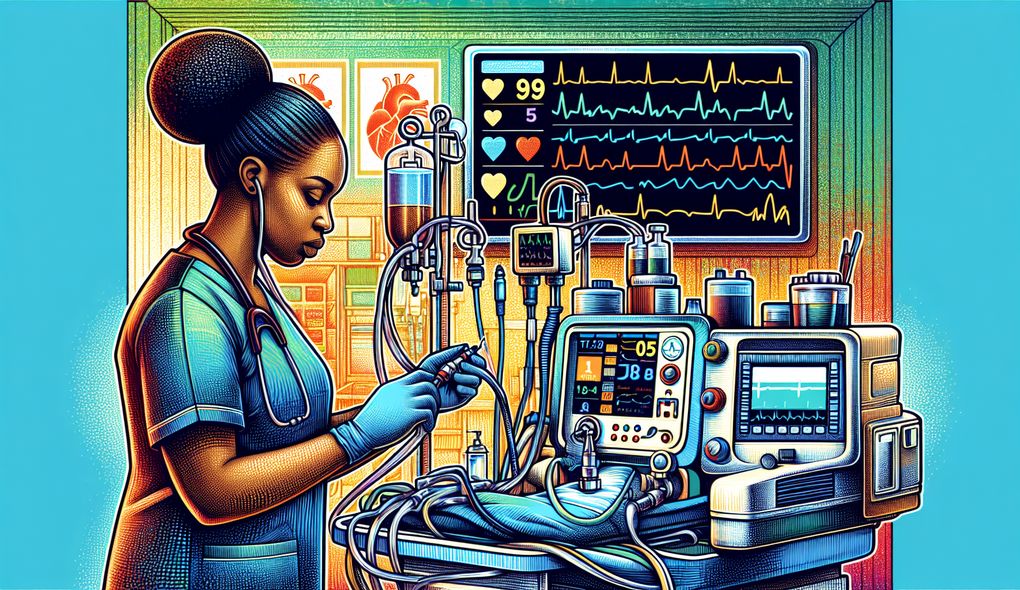What do you consider when determining the appropriate anesthesia dosage for a patient?
SENIOR LEVEL

Sample answer to the question:
When determining the appropriate anesthesia dosage for a patient, I consider several factors. First, I review the patient's medical history to check for any allergies or adverse reactions to anesthesia. Then, I assess the patient's overall health and current medications. This helps me determine if any adjustments need to be made to the dosage. I also take into account the type of surgery being performed and its potential impact on the patient's cardiovascular and respiratory systems. Additionally, I consider the patient's age, weight, and body composition, as these factors can affect how the body processes anesthesia. Finally, I rely on my experience and knowledge of different anesthetic drugs and their dosages to make a safe and effective decision.
Here is a more solid answer:
When determining the appropriate anesthesia dosage for a patient, I take a multi-faceted approach. Firstly, I thoroughly review the patient's medical history, paying close attention to any allergies, adverse reactions, or previous complications related to anesthesia. This information helps me identify any potential risks and tailor the dosage accordingly. Next, I evaluate the patient's current health status and medications. Certain medical conditions, such as cardiovascular or respiratory issues, may impact the choice of anesthetic drugs and dosage. Additionally, understanding the patient's medication regimen allows me to make informed decisions and minimize the risk of drug interactions. Moreover, I consider the specific surgical procedure and its anticipated impact on the patient's physiological systems. For instance, procedures involving major blood loss or significant changes in blood pressure may require adjustments to the anesthesia dosage. Age, weight, and body composition also play a role in determining the appropriate dosage. Pediatric and geriatric patients, as well as those with unique body dynamics, require careful evaluation to ensure safety and optimal anesthesia delivery. Finally, my extensive knowledge of pharmacology and anesthetic drugs enables me to make precise calculations and select the most suitable medication and dosage for each patient. By considering all these factors, I can confidently determine the appropriate anesthesia dosage with a strong focus on patient safety.
Why is this a more solid answer?
The solid answer expands on the basic answer by providing more specific details and examples. It demonstrates the candidate's in-depth knowledge of pharmacology and anesthetic drugs, strong analytical and decision-making skills, and attention to detail regarding patient safety. However, it can be further improved by including specific examples or cases where the candidate applied their expertise to determine the appropriate anesthesia dosage.
An example of a exceptional answer:
As an experienced Anesthesiologist, I approach the determination of anesthesia dosage with a comprehensive and personalized strategy. Firstly, I conduct a thorough pre-operative evaluation of the patient, considering their complete medical history and conducting a physical examination. This includes reviewing any previous adverse reactions to anesthesia, allergies, or medical conditions that may affect anesthesia administration. Additionally, I take into account the patient's current medications, evaluating potential drug interactions or contraindications. Furthermore, I collaborate closely with the surgical team, discussing the nature and duration of the procedure to anticipate the patient's physiological response. By analyzing the surgical site, I consider factors such as blood loss, fluid shifts, and the need for muscle relaxation. Taking patient characteristics into account, I evaluate the impact of age, weight, body composition, and coexisting medical issues on anesthesia requirements. Pediatric and geriatric patients, as well as those with obesity or altered drug metabolism, require individualized dosage calculations. Cutting-edge technology aids my decision-making process, as advanced monitoring devices provide real-time data on vital signs, oxygen levels, and end-tidal carbon dioxide concentrations. This allows for dynamic adjustments during surgery to optimize patient safety. Additionally, my expertise in pharmacology and anesthetic drugs empowers me to select the most suitable medication, taking into account factors such as onset, duration, side effects, and drug interactions. By employing this meticulous approach, I ensure precise anesthesia dosage, promoting patient comfort and minimizing risks. I continually stay updated with the latest research and guidelines, attending conferences and collaborating with peers, to improve my practices and remain at the forefront of anesthesiology.
Why is this an exceptional answer?
The exceptional answer goes above and beyond by including specific examples and demonstrating the candidate's comprehensive understanding of the factors involved in determining anesthesia dosage. It showcases their expertise in pharmacology and anesthetic drugs, analytical and decision-making skills, attention to detail, and commitment to staying updated with advancements in the field. The inclusion of advanced monitoring technology and collaboration with the surgical team further highlights the candidate's commitment to patient safety. The exceptional answer also addresses the candidate's continuous learning and improvement mindset.
How to prepare for this question:
- Review the principles and fundamentals of pharmacology related to anesthesia.
- Stay updated with the latest research and guidelines in the field of anesthesiology.
- Familiarize yourself with different surgical procedures and their impact on anesthesia requirements.
- Practice hypothetical scenarios to demonstrate your analytical and decision-making skills in determining anesthesia dosage.
- Highlight any experience or involvement in research or advancements in anesthesiology during interviews.
What are interviewers evaluating with this question?
- In-depth knowledge of pharmacology and anesthetic drugs
- Strong analytical and decision-making skills
- Detail-oriented with a focus on patient safety

